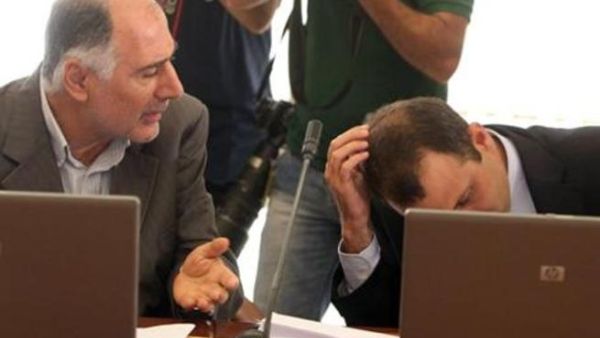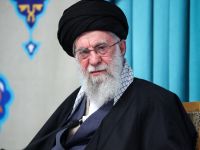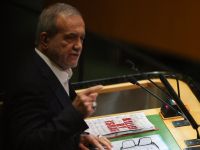The government approved a controversial electricity bill Wednesday after members of the March 8-dominated Cabinet reached a last minute compromise over the funding of the project, ending weeks of negotiations that threatened its unity. At the root of the compromise on the project to boost electricity output by 700 megawatts is the decision to allocate the budgeted funds – $1.2 billion – in four installments, rather than in one payment. The government also agreed to establish a regulatory authority to supervise the sector within three months.
Prime Minister Najib Mikati told reporters that the government will pay the first installment for 2011 as had been agreed previously, but would reduce the second payment, in 2012, by an amount that would subsequently be paid in two installments in 2013 and 2014. Mikati said the government also decided to form within three months a ministerial committee, headed by him and including the finance, health, justice, social affairs, energy, works and economy ministers, to look at the introduction of amendments to Law 462.
Law 462, which outlines the regulatory norms for the administration and management of the electricity sector, requires the formation of a regulatory authority to supervise the sector. A source told The Daily Star that the breakthrough came after intensive talks between President Michel Sleiman, Speaker Nabih Berri, Free Patriotic Movement leader Michel Aoun and officials from Hezbollah.
The discussions led to a compromise that was approved during a meeting between the prime minister, Energy Minister Jibran Bassil and Hezbollah official, Minister of State for Administrative Reform Mohammad Fneish. The source said deliberations in the Cabinet took place in a calm atmosphere, adding that the bill had been approved sooner than expected.
Bassil had refused an earlier proposal Tuesday by Mikati, and threatened to boycott government meetings, which would have paralyzed the work of the Cabinet. Mikati said the government also tasked him with contacting Arab, regional and international funds to secure funding for the project, which was an issue that March 14 parties raised when it blocked Aoun’s proposed electricity bill in Parliament.
March 14 had accused Bassil of seeking to secure funds at high interest rates rather than using low-interest Arab funds. Mikati said the government also agreed on the appointment of a board of directors for Electricite du Liban within two months, and to draw tenders from contractors for the construction of the project in line with applicable laws. He added that the draft bill had yet to be discussed in Parliament where it will be subject to a vote. The bill would need an absolute majority to pass.
“Lebanon won today,” Mikati said when asked which party emerged victorious in the compromise over the electricity bill. “Any dispute or discussion is to reach one goal: to provide electricity to people,” he added. Mikati said the plan was part of a long-term project to provide Lebanon with electricity 24 hours a day, and future governments would need to continue the project, which is expected to cost $5 billion.
Sources close to the Free Patriotic Movement said the agreement over the electricity bill proved that the Cabinet was capable of overcoming difficulties threatening its unity.








